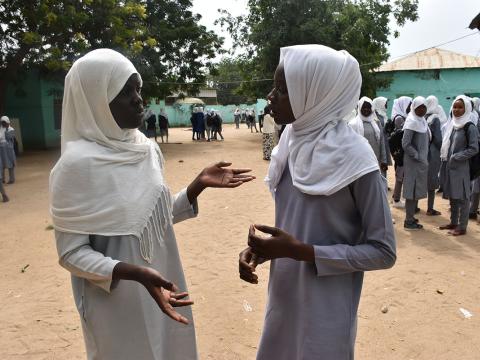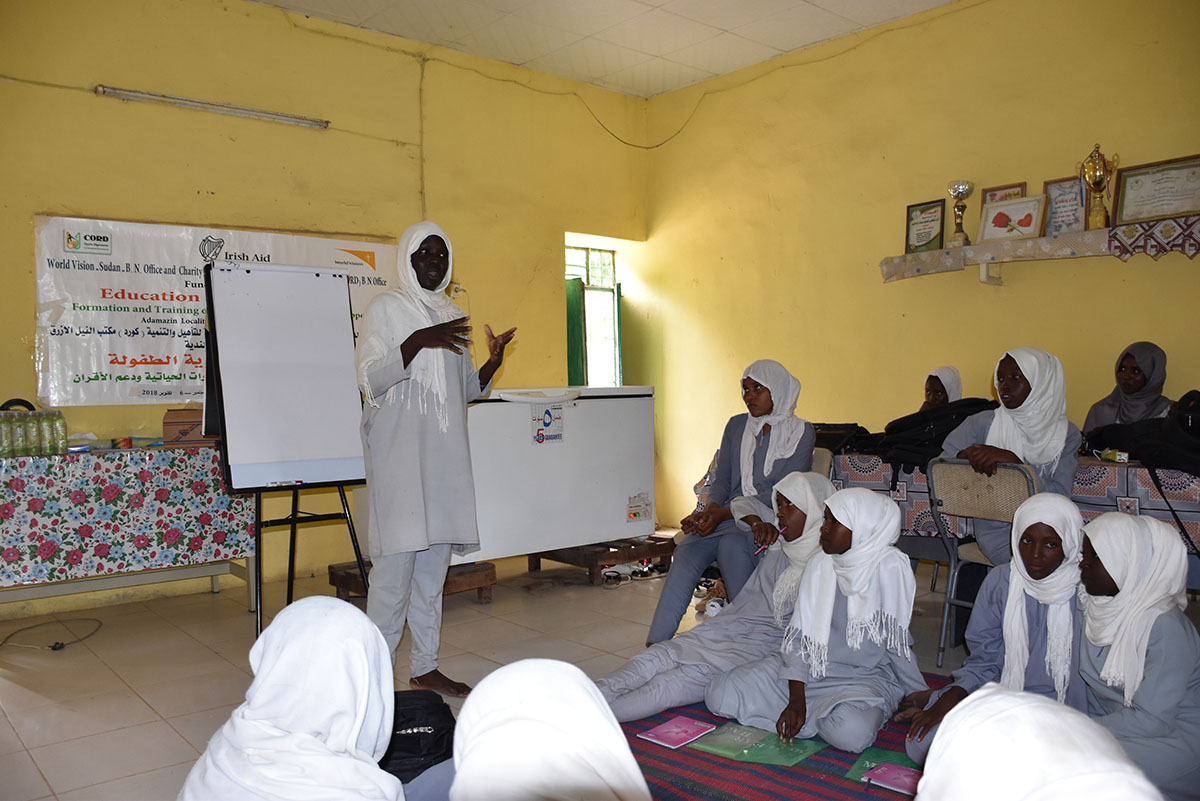Inspired by her desire to see girls think positively, she’s helped establish girls’ clubs

School clubs in Sudan’s Blue Nile state are giving girls a voice!
The clubs are designed to provide girls with an avenue to openly discuss issues that affect them. It is through these clubs that they gain essential life skills. With time girls build their communications skills and are able to confidently articulate issues.
Meet 15-year-old Hala. She lives with her grandma and five siblings in Damazin, the capital of Sudan’s Blue Nile state.
When South Sudan separated from Sudan in 2011, Hala travelled with her grandmother to live in South Sudan. Conflict and violence, would however later force the family to flee back to Sudan.
Hala is a girl on a mission!
She is an active member of her school’s club and uses the clubs to spur on conversations around issues that matter to girls.
She was first introduced to the idea of a girls school club back in 2017. She admits the trainings she received shaped her thinking and that now she looks at life with much more optimism.
“Under the guidance of our teachers and trainers, we learnt how to identify problems we face as well as come up with solutions," Hala says. “Before joining the club I felt hopeless.”
"Girls face many risks such as being married off early, and where I live, I have seen girls being made to leave school to get married. Only a few girls succeed to go to secondary school," Hala notes.
According to Musab al Shaib, a trainer from Peer Education Network, the challenges facing girls range from physical violence, peer pressure, shame endured during menstrual periods, and not able to afford sanitary pads.
Lack of opportunities for girls is a major one too.
These challenges, al sahib says, significantly hinder girls from living out their dreams, and most times resign them to living in shame and despair.
Hala is glad that she found a place where she can spur on conversations for the girls, explaining that when she first joined secondary school, first thing she was bent on doing was to establish a girl’s club.
"When you listen to the girls articulating the issues affecting them, you can't help but be blown away” Osman Mawada, the deputy principal of Hala’s school points out.
Mawada goes on to say that the issues the girls raise now were hardly ever discussed openly by the girls at the school before.
Thanks to the clubs girls are openly discussing issues, they are gaining life skills, empowered to take charge of their lives, and how to protect themselves against violence.
“Open discussions, drawings, songs, posters, drama and games are some of the tools used to help girls engage actively in the clubs,” al Shaib points out.
Each week, 22 girls members of the girls’ club Hala formed, meet to openly discuss issues, under the supervision of trainers.
"Before joining the club I always thought it was inappropriate to speak about particular challenges we as children, especially girls face," says 14-year-old Ghizlan, Hala's friend and a member of the club."After joining the club, I have come to learn that discussing with people who share with you the same problem is the first step toward solving any problem.”
There are at least 2,190 girls actively involved in school clubs in Blue Nile’s Damazin and Mahi localities.
In partnership with Peer Education Network and national NGO-Charity Organization for Rehabilitation and Development (CORD) World Vision has helped establish six girls clubs across primary schools (also known as basic schools) in Damazin and Wad al Mahi localities.
Story by Nahla Al Badri- monitoring & evaluation officer
World Vision in Blue Nile
